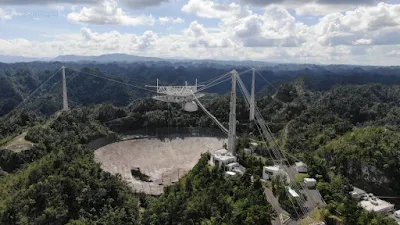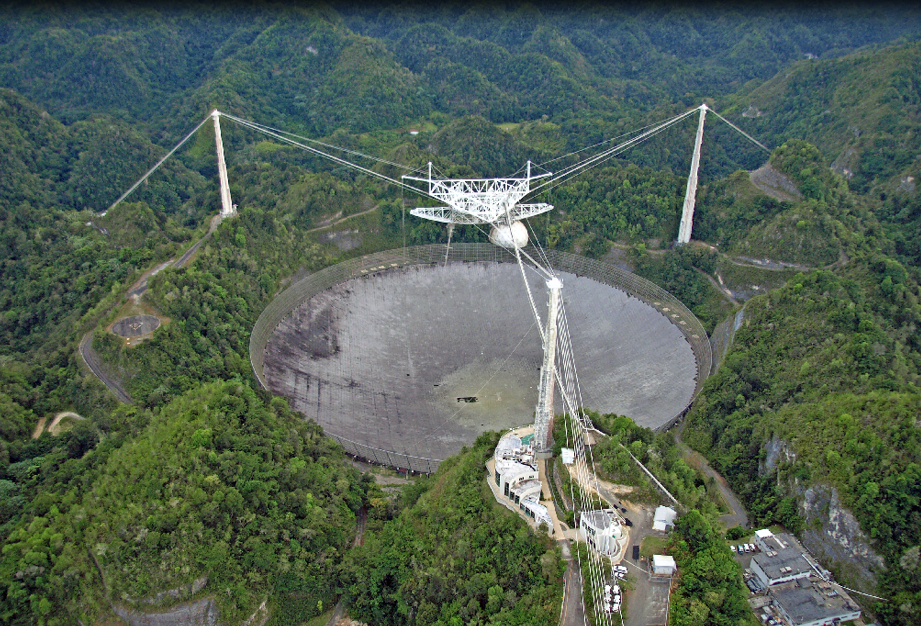It is about 100 miles across the Mona Channel. That is a longshot on 2 meters, but I got the idea when, this past summer, I regularly heard WIDI 99.5 FM in the Dominican Republic from western Puerto Rico. So over the fall I gathered 2 meter gear, and got a directional antenna and sent all of this gear to the DR.
Here is the antenna. Seven elements. I got it through Amazon. It came kind of incomplete and without any written or on-line instructions. AI told me to do exactly the WRONG thing with what they assumed was a reflector. Fortunately I ran into this YouTube video and learned that it was in fact a "ZL Special" antenna, and that it has, in fact, TWO driven elements. It was through that video that I learned how to assemble this thing.
My "station" consists of a Heathkit HM-2109. It is a VHF wattmeter/SWR meter that I bought by mistake. But I kept it, and it proved very useful in this 2 meter Mona Channel project. There is a Baofeng UV-5R (boo! hiss!) and a Yaesu FT-470 that KD4EBM gave me. I have a Communication Concepts 2 meter amplifier -- I must have picked this up at a hamfest. It promises 35 watts with 5 watts of drive. The old CCI amp gives the rig good juju.
This morning I wrote to the hams of western Puerto Rico:
--------------------------------------------------------
Saludos desde el otro lado del canal de la Mona!
-----------------------------------------
Greetings from the other side of the Mona channel!
I am a radio amateur: Hi7/N2CQR. We live in the Dominican Republic in Cap Cana six months every year.
I've noticed that I can listen to WIDI 99.5 FM here.
There seems to be Tropospheric ducting.
Two FM transceivers
An amplifier at 35 watts. \
A 7-element directional antenna with a gain of 11.5 db.
I am at an elevation of 7 Stories. I can see the Mona's
channel.
-------------------------------
Stay tuned!




















